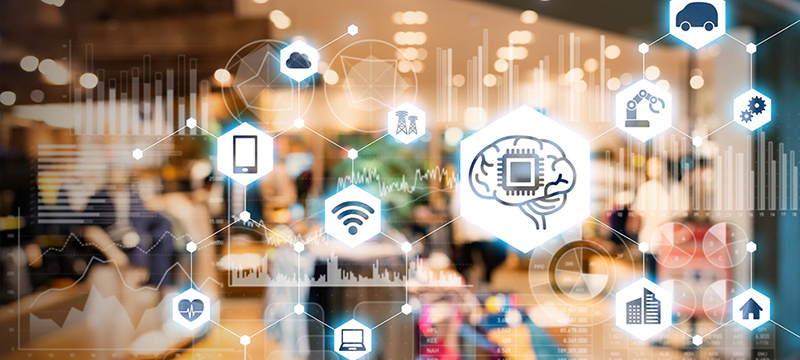InsightAce Analytic Pvt. Ltd. has announced the release of a market valuation report on global IoT in Retail market.
According to the latest research from InsightAce Analytic, the value of the global Internet of Things in retail market is expected to reach USD 57.8 billion in 2023 and reach USD 464.9 billion by 2031, growing at a CAGR of 30.1% during the forecast period 2024-2031.
The Internet of Things (IoT) is transforming the retail market by improving customer experiences, optimizing operations, and enabling new business models. IoT technologies such as smart shelves, beacons, and connected devices provide real-time data and insights into stock levels, customer preferences, and store traffic patterns. This data allows retailers to manage inventory more efficiently, personalize marketing efforts, and streamline supply chain operations. Additionally, IoT-enabled devices can enhance the in-store experience through features such as automated checkout, interactive displays, and customized promotions based on shopper behavior.
The increasing adoption of IoT is expected to drive significant improvements in innovation and efficiency, helping retailers remain competitive in a rapidly evolving market. The rise of omnichannel retailing, driven by IoT technology to seamlessly integrate online and offline shopping experiences, is contributing to the market growth. Additionally, the increasing prevalence of IoT-enabled smart stores, where retailers use interconnected devices and sensors to provide an immersive and personalized shopping experience, is further accelerating the market expansion.
driver:
The growth of Internet of Things (IoT) in the retail market is driven by several key factors, including the increasing demand for enhanced customer experience and the need for efficient inventory management. IoT technology enables retailers to collect real-time data on consumer preferences and behaviors to develop personalized marketing strategies. Additionally, IoT solutions improve supply chain visibility and operational efficiency, reducing costs and increasing productivity.
Increasing knowledge and adoption of smart devices and advancements in IoT technologies will further drive the market growth. Additionally, the integration of IoT with emerging technologies such as machine learning and artificial intelligence will enhance decision-making processes and predictive analytics in retail operations.
assignment:
The retail market faces numerous hurdles when it comes to adopting the Internet of Things (IoT). A major obstacle is ensuring data security and privacy. As IoT devices collect a wide variety of data, it becomes increasingly difficult to protect this data from intrusion and ensure customer privacy. Another challenge is integrating IoT systems with existing retail infrastructure.
Retailers often face compatibility issues and have to make significant investments in technology upgrades. Moreover, managing and maintaining a network of interconnected devices is complex and requires specialized skills and knowledge. Moreover, technological advances are occurring at a rapid pace, forcing retailers to continually adapt to stay competitive, which can be both costly and resource consuming.
Regional trends:
IoT in North American retail market is expected to capture a significant market share. This growth is due to the integration of in-store and digital operations in the retail sector, where technologies such as RFID tags and smart shelves enable retailers to efficiently manage inventory and improve shopping experience. The Asia Pacific (APAC) region is expected to be the fastest growing market, with a notable CAGR projected from 2024 to 2031. This rapid and continued growth is driven by increasing internet penetration, smartphone usage, and e-commerce activities. This digital shift creates a ripe environment for the adoption of digital avatars in customer interactions, marketing strategies, and virtual experiences.
Recent developments:
In January 2024, IBM partnered with SAP SE to create a solution aimed at helping consumer goods and retail clients leverage generative AI to optimize supply chains, financial operations, sales, and services. In December 2023, HCL Technologies (HCL) partnered with SAP to develop and deliver IoT solutions and services relevant to various industries. HCL Technologies bundles relevant SAP software with services and hardware to speed and streamline the fragmented and complex solution stacks that organizations face when implementing Industry 4.0 transformation.
Source link

